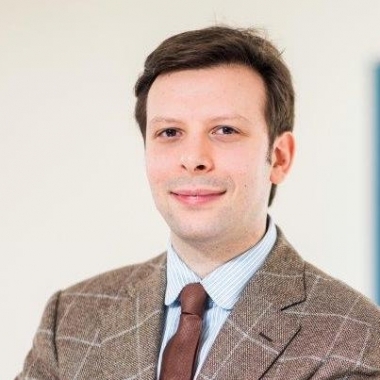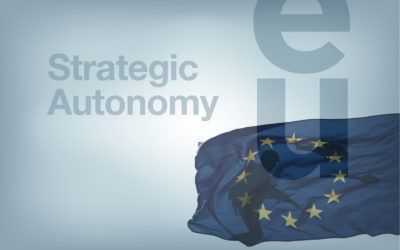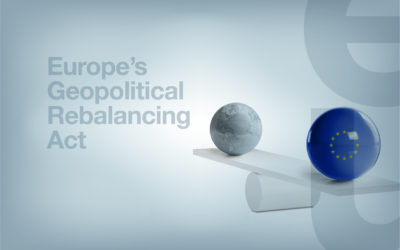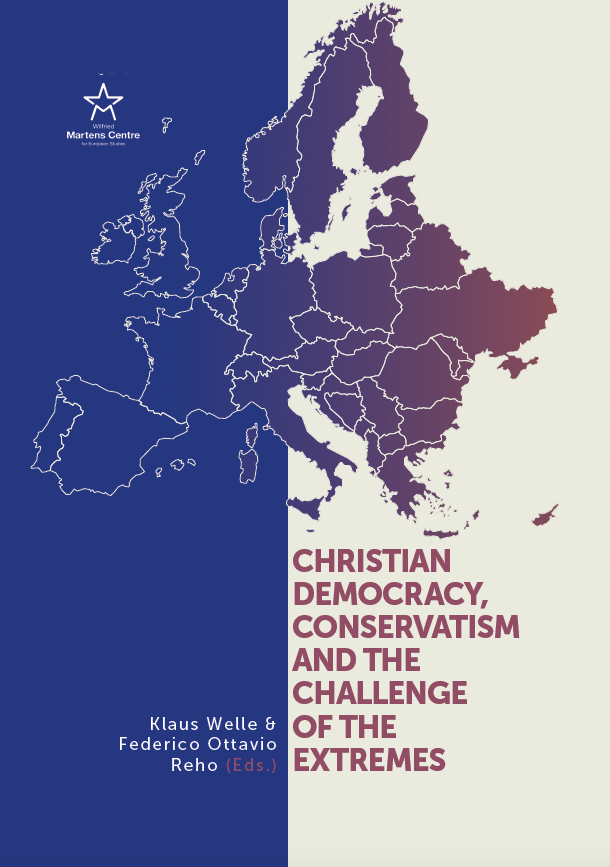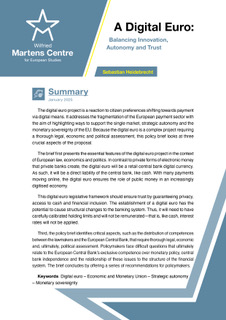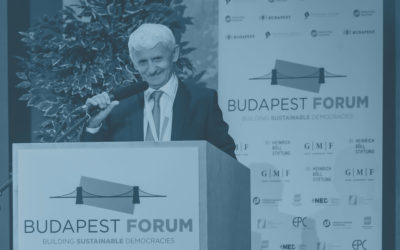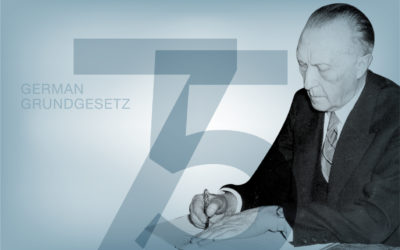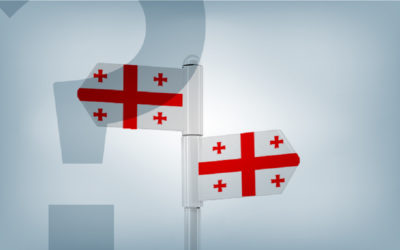Economy with a human face: some thoughts on Wilhelm Röpke’s ‘A Humane Economy’
10 November 2015
Socialists of all colours would have us believe that government interventions and regulations are the only way to tame the animal spirits of capitalism and give it a human face. As so often with socialist mantras, the very opposite is true: only a ‘conservative economy’ can be truly humane. But what exactly is a conservative economy? First, I define as conservative an economy with minimal government intervention, organised according to the principles of competition and individual freedom and responsibility. Second, I define as conservative an economy that is embedded in a society with solid conservative morals and a wealth of spontaneously developed and organically grown institutions.
The first element was crucial in unleashing the forces of human ambition and creativity that produced what economic historian Deirdre McCloskey called the ‘Great Enrichment’ of the last two centuries. The second element is crucial in order to maintain a sense of moral restraint and community belonging, which channel these wild creative forces to the pursuit of high and worthy purposes, something the rigorous enforcement of free market principles alone cannot ensure. In the inspired words of Edmund Burke, the father of modern conservatism: ‘society cannot exist, unless a controlling power upon will and appetite be placed somewhere; and the less of it there is within, the more there must be without.’
Precisely: the progressive agenda has always been about weakening ‘the controlling power within’ (the strict moral discipline of the classical and Christian tradition) in order to strengthen ‘the controlling power without’ (government controls and regulations), with a clear loss of human freedom, diversity and spontaneity; the conservative agenda has been – and should still be – about reviving ‘the controlling power within’ in order to minimise ‘the controlling power without’, thus protecting a societal model that is both more free, more humane and better connected to the great history of Europe’s civilisation.
In my understanding, this is one of the central themes in the thinking of German economist Wilhelm Röpke, a man who certainly deserves an honourable place in the intellectual pantheon of the European centre-right. Now fallen into almost complete oblivion, except in some ordoliberal circles of his native country, Röpke was once a respected and influential personality. He is rightly regarded as one of the intellectual fathers of the ‘Social Market economy’ and considered as the intellectual mentor of Ludwig Erhard, the man who, as Minister of Economics and then federal Chancellor, engineered the extraordinary rebirth of West Germany’s economy in the 1950s and 60s, and to whom Röpke was a trusted advisor.
Precisely fifty-five years ago, Röpke published a book entitled A Humane Economy, in which he set out to reflect upon ‘the social framework of the free market’ (a free PDF version of the book is available here). The book never became a bestseller and was too focused on the ills of its author’s age to be considered a classic. However, to the extent that the ills of its author’s age are also the ills of our age, there is a great deal we can learn from it. Here are some of the lessons I retained, although I do not claim that Röpke would have necessarily illustrated them the way I do:
- In spite of its amazing power of innovation, the market is a conservative institution with precise limits. It is ‘conservative’ because it is, to borrow the expression of Adam Ferguson and Friedrich Hayek, ‘the product of human action but not of human design’. In other words, it is an organically grown institution resulting from the free and spontaneous interaction of human beings. Nobody has either planned it or can control it, and yet its results are infinitely better than anything the smartest planners could engineer because it gives free course to human cooperation and ingenuity. At the same time, Röpke explains, what makes life worthy is ‘the whole unpurchaseable world beyond the market and turnover figures, the world of dignity, beauty, poetry, grace, chivalry, love, and friendship, the world of community, variety of life, freedom, and fullness of personality’. There is no guarantee that free markets will promote the pursuit of these values, in fact they may even discourage it unless they are underpinned by healthy moral foundations.
- The European welfare state is one of the major instruments of the progressive plan to weaken ‘the controlling power within’ and strengthen ‘the controlling power without’. As Röpke explains in details, ‘a whole world divides a state which occasionally rescues some unfortunate individual from destitution from another state where a sizable part of private income is constantly sucked into the pumping engine of the welfare state and diverted by it, with considerable friction losses’. In the second scenario (our scenario), the welfare state becomes a bureaucratic machine that weakens individual and family responsibilities, distorts economic incentives, increases economic dependency and tends towards self-aggrandizement and the self-preservation of people who have a stake in it.
- An integrated European order that is both free and humane must be built on federalism and on what Röpke calls ‘decentrism’, not on centralisation and progressive planning. Calling himself a ‘European patriot’, this German intellectual who was in love with Switzerland – where he lived and taught for a long time – seems to have had in mind the Swiss model of the immediate post-WWII period when he spoke about Europe. According to him, the continent had to consolidate, recover its self-confidence, revive its political and military power and regain its due place in world politics, but it could only do so by strictly adhering to decentralisation, revitalising local communities and embracing competitive federalism: ‘decentrism is of the essence of the spirit of Europe. To try to organize Europe centrally, to subject the Continent to a bureaucracy of economic planning, and to weld it into a block would be nothing less than a betrayal of Europe and the European patrimony’. We are not very far from the European federalism I recently defended as the best vision for the pro-European right of the 21st century.
Wilhelm Röpke was all at once a Christian humanist imbued with the social doctrine of the Catholic Church, a conservative in the best central and Northern European tradition and a free market economist. He harmoniously combined in his own thinking different intellectual traditions which are now politically represented within the European People’s Party. His work deserves to be rediscovered and pondered.
ENJOYING THIS CONTENT?


